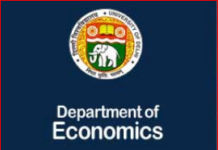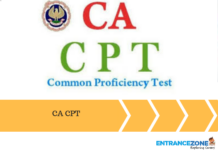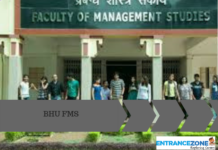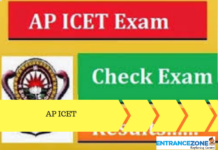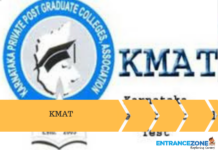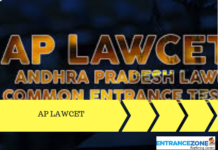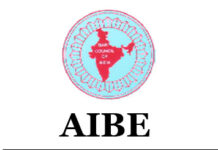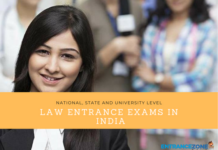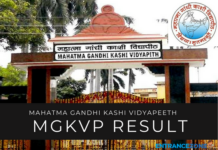G20 leaders adopt Delhi Declaration to make education more inclusive and equitable, focusing on foundational learning, digital skills, and lifelong learning. Further, in a major move to make education more inclusive and equitable, leaders of the G20 countries adopted the Delhi Declaration on Education and Skills on Saturday. Furthermore, the declaration was adopted at the end of the two-day G20 summit in Delhi, India. The summit was hosted by Indian Prime Minister Narendra Modi.
Admission Open 2023
- Top University & Colleges Official Links, Application & Scholarship Forms.
Moreover, the declaration calls on G20 countries to take urgent action to address the challenges facing education, including the digital divide, gender inequality, and the lack of access to quality education for all.
It also calls for increased investment in education, both domestically and globally.
Subscribe to Get Updated Information about G20 Nations Pledge to Make Education More Inclusive and Equitable - Admissions
Here are the key points of the Delhi Declaration on Education:
- Foundational Learning: Firstly, it recognizes the importance of foundational learning, which includes literacy, numeracy, and socio-emotional skills. These are considered the fundamental building blocks for education and employment. Further, this highlights the significance of ensuring that individuals have a strong base of knowledge and skills to build upon.
- Digital Divide: Reiterates the commitment to use digital technologies to bridge the digital divide. moreover, this means ensuring that all learners, regardless of their background or location, have access to digital resources and tools to support their education. Lastly, overcoming this divide is crucial in today’s digital age.
- Support for Educational Institutions and Teachers: Firstly, it acknowledges the need to support educational institutions and teachers in keeping up with emerging trends and technological advances, including artificial intelligence (AI). Also, this recognizes that educators play a vital role in preparing students for the future, and they need support to adapt to changing educational landscapes.
- Technical and Vocational Education: Emphasizes the expansion of access to high-quality Technical and Vocational Education and Training (TVET). Further, TVET programs are essential for providing individuals with practical skills and knowledge that are directly applicable to the workforce, helping to address skills gaps.
- Scientific Collaboration: Reaffirms the commitment to promote open, equitable, and secure scientific collaboration. Moreover, this encourages cooperation and knowledge sharing among researchers, students, and scientists across different institutions and countries. Therefore, fostering innovation and progress in various fields.
- Lifelong Learning: Highlights the importance of enabling lifelong learning, particularly focusing on skilling, reskilling, and upskilling. Further, this underscores the need for continuous learning throughout one’s life to adapt to changing job markets and technologies. Further, it particularly focuses on vulnerable groups who may face barriers to education and training.
The Delhi Declaration is a significant step forward in the global effort to make education more inclusive and equitable. Further, it is a call to action for G20 countries to invest in education and to work together to ensure that all children have access to quality education.
G20 countries can take Action to make Education more Inclusive and Equitable
Here are some of the specific actions that G20 countries can take to make education more inclusive and equitable:
- Firstly, Invest in early childhood education and care.
- Secondly, provide financial assistance to families so that all children can afford to attend school.
- Thirdly, Remove barriers to education for children with disabilities.
- Train teachers to better meet the needs of all learners.
- Use technology to improve access to education in rural and remote areas.
- Lastly, Advocate for policies that promote gender equality in education.
By taking these actions, G20 countries can help to ensure that all children have the opportunity to reach their full potential.
Therefore, The Delhi Declaration is a positive step forward, but it is just the beginning. Much more needs to be done to make education more inclusive and equitable. Moreover, G20 countries must continue to work together and invest in education if we are to achieve this goal.
Download G20 Education Ministers’ Document
Underlining Four Priority Themes to Transform Education
The G20 Education Working Group placed its central emphasis on four crucial priority themes. Further, these priorities encompassed ensuring that foundational literacy and numeracy skills are firmly established, harnessing the potential of digital technology to enhance learning experiences, fortifying the connections between education and the evolving landscape of the workforce, and fostering collaborative efforts among higher education institutions across borders. Therefore, these themes collectively formed the core focus of the group’s discussions and initiatives.
| Priority Themes for Education Transformation | Key Components and Focus Areas |
|---|---|
| 1. Ensuring Foundational Literacy and Numeracy | – Focusing on building strong foundational skills. |
| – Ensuring all learners have basic literacy and numeracy. | |
| 2. Leveraging Digital Technology | – Bridging the digital divide. |
| – Using technology to enhance learning. | |
| 3. Strengthening Relevance to Future Work | – Preparing for the future job market. |
| – Linking education with the needs of the workforce. | |
| 4. Promoting Collaboration in Education | – Encouraging collaboration across borders. |
| – Enhancing cooperation in research and innovation. | |
| Lifelong Learning Emphasis | – Ensuring learning opportunities throughout life. |
| – Focusing on inclusion, quality, and equity. |
| Keys to Inclusive, Quality Tech-Enabled Learning (5 C’s Framework) | Components and Areas of Focus |
|---|---|
| 1. Coordination and Leadership | – Effective leadership and coordination in education. |
| 2. Content and Curriculum | – Developing relevant and up-to-date curriculum content. |
| 3. Connectivity and Infrastructure | – Ensuring access to digital infrastructure and resources. |
| 4. Capacity and Culture | – Building the capacity of educators and learners. |
| 5. Cost and Sustainability | – Ensuring affordability and long-term sustainability. |
| Need for Accurate Data | – Timely and accurate data to support decision-making. |
| Addressing Lifelong Learning and Future of Work | Key Strategies and Actions |
|---|---|
| – Preparing for the Age of Artificial Intelligence | – Adapting education systems for AI and automation. |
| – Expanding Postsecondary Education | – Increasing access to higher education. |
| – Diversifying Technical and Vocational Education and Training (TVET) | – Providing diverse opportunities for skills development. |
| – Examining Skills Strategies and Recognition Systems | – Developing effective skills recognition mechanisms. |
| Highlighted Role of Higher Education | Focus Areas |
|---|---|
| – Intersection of Education, Research, and Innovation | – Strengthening the role of higher education in innovation. |
| – Addressing Challenges in Areas Such as Energy, Health, and Climate Change | – Rethinking strategies for higher education research. |
| – UNESCO’s Commitment to Education Transformation | – Supporting Member States in implementing the vision. |
| – Thanking the G20 Countries | – Expressing gratitude for their contributions. |
| – The Documents as a Source of Inspiration and Guidance | – Highlighting the importance of the output documents. |
| – The Spirit of One Earth, One Family, One Future | – Emphasizing global cooperation in education. |
Download Outcome Documents

